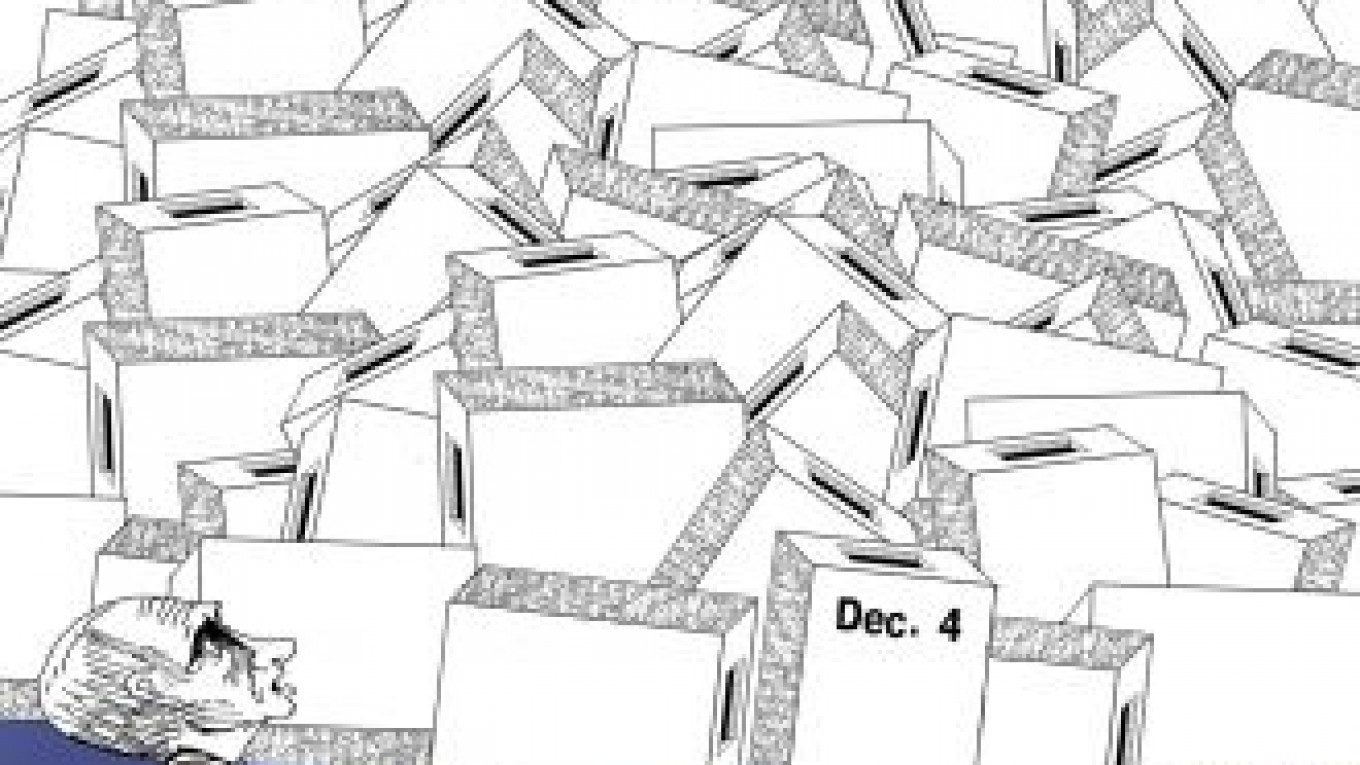Sunday’s State Duma elections were the greatest show on Earth, except perhaps for the Big Bang. The main contribution of Prime Minister Vladimir Putin and his 11 years in power was to provide some form of stability after the disaster and chaos caused by former President Boris Yeltsin in the 1990s. Russia, unfortunately, has made very little progress in terms of democracy, despite Europe’s support.
To be sure, it takes decades to reach the standards that the Council of Europe wishes for the 47 countries belonging to it. But Russia is proceeding far too slowly. In fact, now you tend to equate the ruling party, United Russia, with the state, an outdated Soviet model that is inconsistent with the basic elements of any democracy.
I have been a long-time observer of Russian politics and economics, not only during legislative and presidential elections. To be fair, many of Putin’s initiatives have been commendable and beneficial to the Russian people. I realize that it is not easy to run a country as large as Russia.
But the majority of Russians are not happy. They want to be more European. Abroad, Russia’s credibility has diminished significantly over the past 11 years, and the documented cases of election fraud on Sunday that were placed on the Internet only make this worse.
When I monitored several polling stations both in central Moscow and the Moscow region, I saw very few young people going to the polls. This means that they don’t agree with the policies of the government and United Russia. Not having any possibility of an alternative, they chose not to vote. Even in Russia, the increasing influence of the discussion and criticism available on the Internet is powerful. We well know that when protests start, it’s very difficult to stop them.
It is undeniable that United Russia is in big trouble. Russians, especially young people, want their country closer to Europe, which is their model, where political parties are free associations that anyone can create. United Russia offers no such model.
Rather than accommodating the wishes of people to approach Europe, the Kremlin has turned its back on them. This can be seen even in simple examples, such as President Dmitry Medvedev’s decision to cancel daylight saving time. This only distances Russia even further than it already is from Europe.
As an observer on the ground, I sensed the nervousness and confusion among those who were deciding the future of Russia. There are too many privileges and constraints in favor of United Russia.
I also sensed an overly sharp and defensive reaction against a statement by the Council of Europe delegation last month after it carried out pre-electoral monitoring in Moscow. At the headquarters of the Central Elections Commission, the police didn’t allow me access to my interpreter, preventing me from observing the data.
United Russia still has a majority in the Duma, but now it is necessary to form a government consisting of a new generation of politicians who know how to fight the cancer of corruption and value the importance of an independent parliament and free media. These are the basic components for democracy and rule of law. The real test for the country will be in less than three months during the March presidential election. I fear that it won’t be a plebiscite, as in the past. Indeed, it is expected that popular dissent will increase. Putin even runs the risk of not achieving more than the 50 percent required to win without a second round. If this occurs, it would be the end of the invincible tsar.
Russia is at a crossroads. I hope that those who lead this great country know how to choose the right direction.
Andrea Rigoni, a member of the Italian parliament, is on the political committee of the Council of Europe Parliamentary Assembly and served as a Council of Europe observer for the State Duma elections.
A Message from The Moscow Times:
Dear readers,
We are facing unprecedented challenges. Russia's Prosecutor General's Office has designated The Moscow Times as an "undesirable" organization, criminalizing our work and putting our staff at risk of prosecution. This follows our earlier unjust labeling as a "foreign agent."
These actions are direct attempts to silence independent journalism in Russia. The authorities claim our work "discredits the decisions of the Russian leadership." We see things differently: we strive to provide accurate, unbiased reporting on Russia.
We, the journalists of The Moscow Times, refuse to be silenced. But to continue our work, we need your help.
Your support, no matter how small, makes a world of difference. If you can, please support us monthly starting from just $2. It's quick to set up, and every contribution makes a significant impact.
By supporting The Moscow Times, you're defending open, independent journalism in the face of repression. Thank you for standing with us.
Remind me later.






